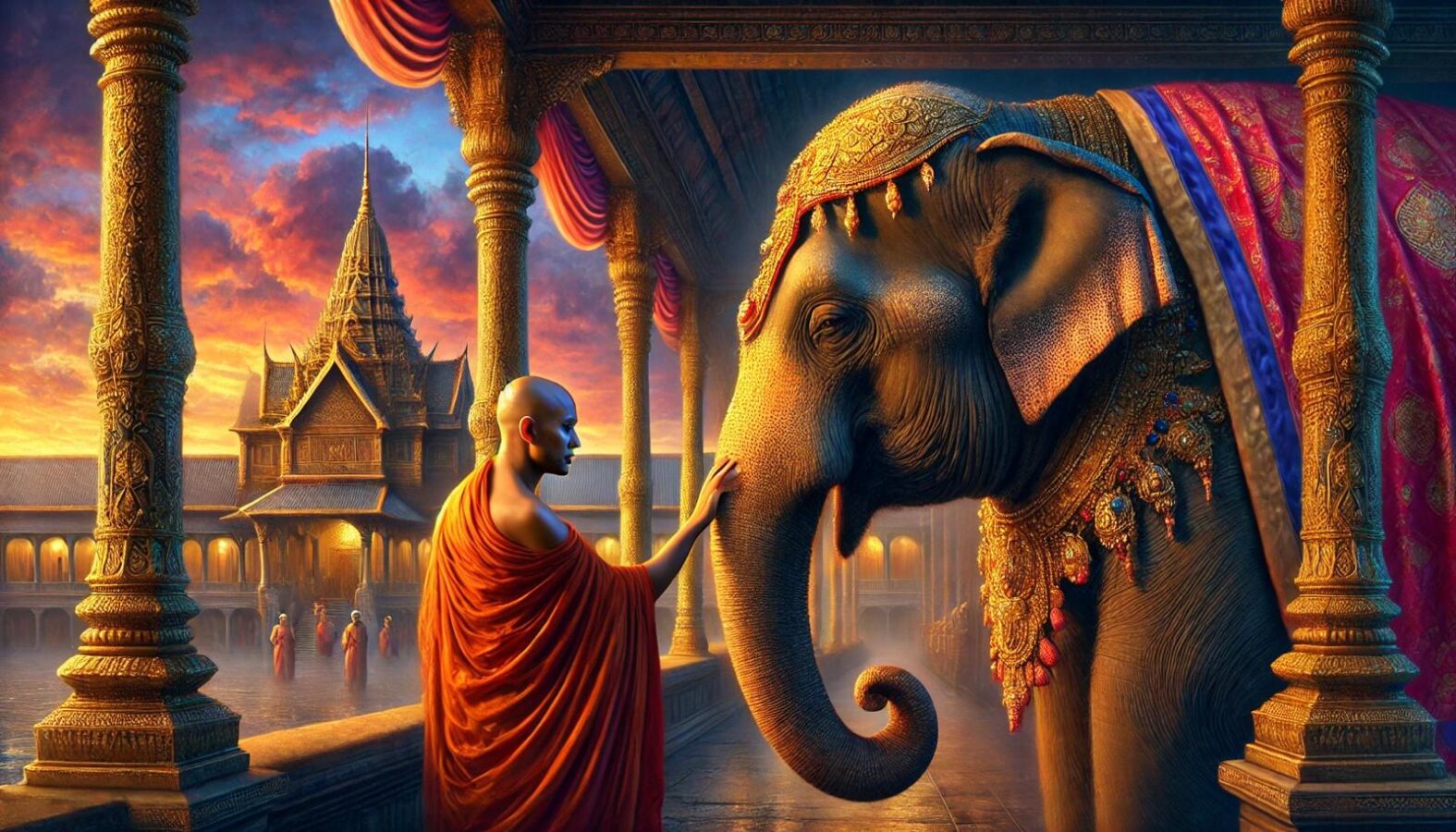
Date: 08/30/2025 08/31/2025
Location: Star Ocean Meditation Center
Teacher: Otto Huang
Dharma Talk
The Arhat and the Elephant
In times of old, there were two brothers who renounced the household life and followed the Blessed One into the monastic path.
The elder brother, diligent in upholding precepts, daily applied himself to meditative cultivation and contemplation, yet was negligent in communal duties. He pursued concentration and wisdom alone, yet did not nurture the roots of merit.
The younger brother, by contrast, was zealous in labor and generous in giving, ever engaged in acts of charity and benefaction, and thus amassed vast stores of merit. Yet he lacked restraint in the discipline of the Tathāgata’s pure Vinaya, and was often found in transgression.
Thereafter, when the elder passed from this life, he was reborn in the time of the Buddha and entered the Saṅgha, swiftly attaining the fruit of Arhatship.
But the younger, by the force of his former karma, took birth among the elephants, and became a king of that species. By the power of past merit and the blessings of his former giving, the elephant’s body was wondrous in form and color, with strength surpassing all others.
The king of the land cherished this elephant greatly, bestowing upon him the title “Lord of a Hundred Households.” He adorned the elephant’s form with gold, silver, and precious jewels, and appointed servants to attend to its nourishment and comfort. Thus did the elephant enjoy a life of pleasure and opulence in the royal court.
As for the elder brother, now an Arhat, his circumstances were otherwise. At a time when famine struck the land, he wandered with tattered robes and a mendicant’s bowl, receiving not a morsel for seven days. Hunger and cold assailed him; so weak was he that he could no longer stand upright. Subsisting on scant offerings, he barely sustained his life.
One day, as the Arhat walked the roads seeking alms, he beheld his former brother reborn as a mighty elephant, adorned with silken cloth and strings of pearls, paraded through the streets. Townspeople offered the elephant fragrant foods and fine delicacies.
The Arhat, recognizing the karmic bond of past lives, went in the evening to where the elephant was housed and addressed him thus:
“We both in former times committed unwholesome deeds. Recall now the deeds of your past lives.”
The elephant, by the spiritual power of the Arhat’s words, immediately awakened remembrance of past lives.
Recalling the deeds he had performed and the karma thereof, the elephant was seized by deep remorse and sorrow, and from that day refused food.
Hearing that the elephant had ceased to eat, the king dispatched officials to inquire of the cause. They learned that, on the previous evening, a monk had spoken softly into the elephant’s ear. From that night onward, the elephant would no longer accept food.
“What words did that monk speak?” asked the king, with rising concern.
“We could not discern clearly,” replied the keepers.
The king then ordered, “Bring that monk before me at once.”
Soon after, the monk was brought before the king. The king inquired, “Venerable one, what words did you speak to my elephant? Since seeing you, it has neither eaten nor rejoiced.”
The monk replied, “I merely said to him: ‘You and I both have past karmic faults.’ Nothing more did I speak.”
Then the monk explained in detail the former-life connection between himself and the elephant. Hearing this, the king was filled with awe and reverence, gaining deep faith in the law of karma and its unfailing retribution.
Thereafter, a verse was recited and widely transmitted:
“He who cultivates wisdom but neglects merit,
An Arhat with an empty bowl shall be.
He who gathers merit but not wisdom,
A bejeweled elephant in royal halls shall he become.”

